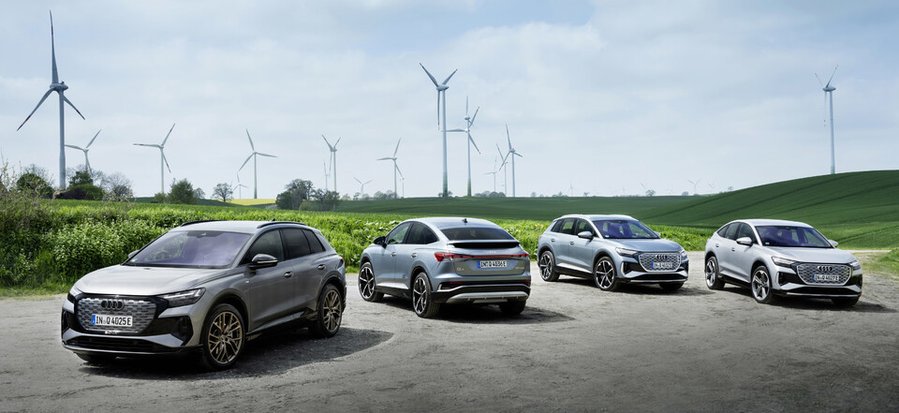The move, first reported by German publication Süddeutsche Zeitung, was confirmed by Audi boss Markus Duesmann in a speech at a Climate Neutrality Foundation conference. Duesmann said the brand is "ready to make its decisive and powerful move into the electric age."
Production of Audi's final newly developed ICE model will begin in 2026. From that point onwards, the firm will only release new models powered purely by electricity in its worldwide line-up. While it grows its EV range, Audi will gradually phase out its ICE models, with production of the final version ending in 2033. The firm is aiming to achieve net zero emissions by 2050.
“Through our innovative strength, we offer individuals sustainable and carbon-neutral mobility options,” said Duesmann. “I don’t believe in the success of bans. I believe in the success of technology and innovation.”
Such an acceleration of Audi's electrification targets is in line with wider ambitions set by its Volkswagen Group parent company, which has previously hinted that it will shift focus wholly to electrified vehicles in Europe from 2026.
Audi's range of electric vehicles is rapidly expanding. Since the 2018 arrival of its first, the E-tron SUV, it has launched the E-tron GT fastback and the Q4 E-tron crossover and it will reveal the A6 E-tron saloon and Q5 E-tron SUV in 2022.
Nearly every mainstream passenger car in the Audi line-up is now available with a plug-in hybrid powertrain, too.
However, it is expected that Audi will sell combustion-engined cars into the 2030s, with the final ICE model expected to have a conventional lifecycle of around seven years from 2026. It is not yet known which model will feature Audi's final engine, but the current-generation Q5 will be up for replacement at around that time.
Duesmann added that the exact timing of when Audi phases out ICE models will be determined by customer demand and legislation. While Audi will be forced to phase out non-zero-emission models in certain markets before 2033 – such as the UK, which will ban sales of most non-zero-emission cars from 2030 – the target includes markets such as the US, where ICE machines are likely to continue being sold past that date.
However, Audi said continued demand for combustion-engined models in China could result in locally produced ICE vehicles continuing to be sold there beyond 2033.
It's likely that the imminent roll-out of stringent new European emissions regulations, known as Euro 7, has influenced Audi's decision to focus on purely electric powertrains.
Last month, Duesmann told Autocar: “It’s certainly true that meeting Euro 7 [standards] adds a lot of cost to combustion engines and that a crossover point is coming. We think by the middle of the decade at the latest. Euro 7 is a real headache, especially since it doesn’t do much to improve the environment. So we will reach this crossover point soon.”
Related News

